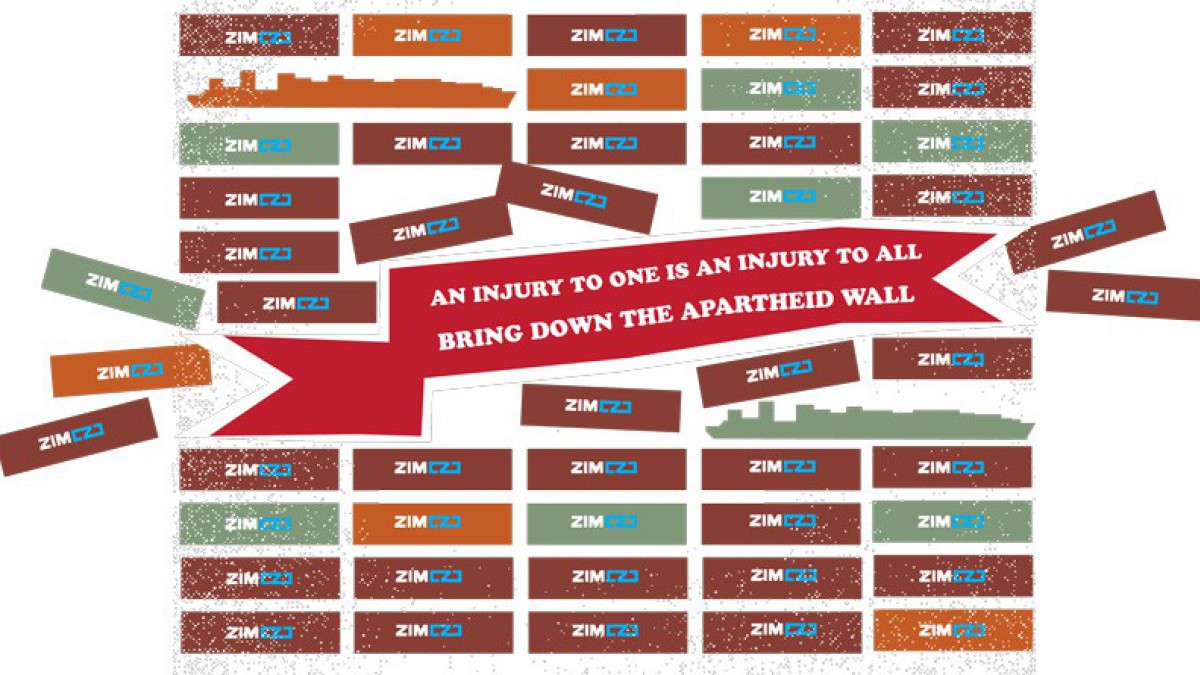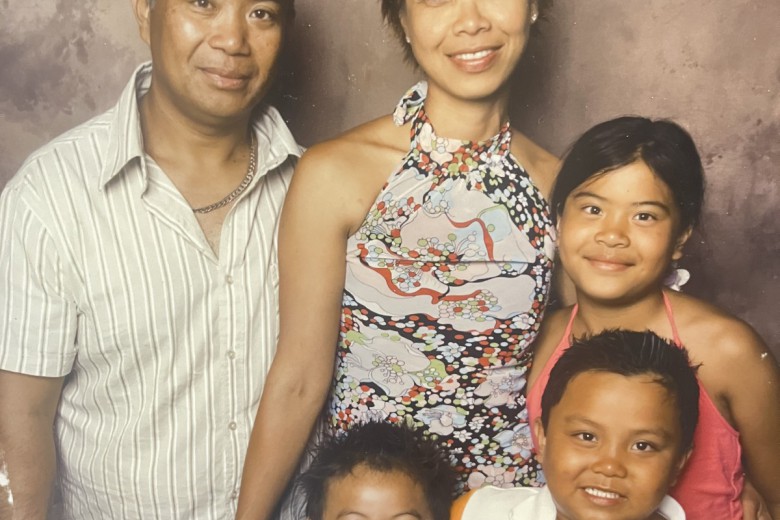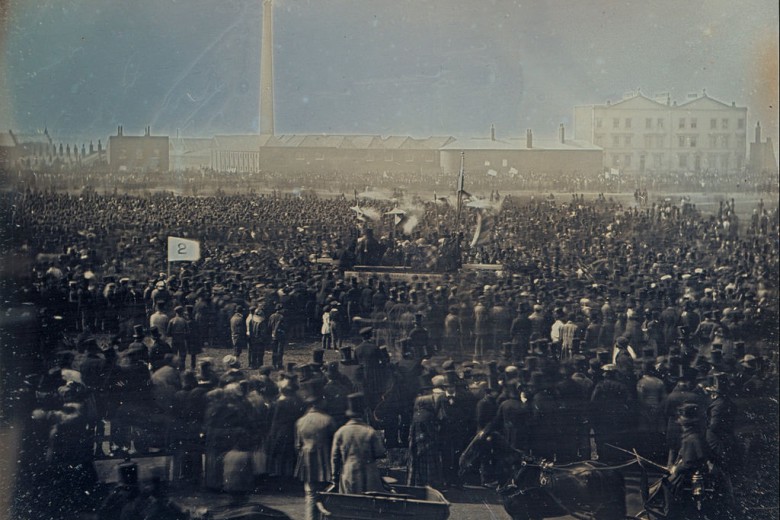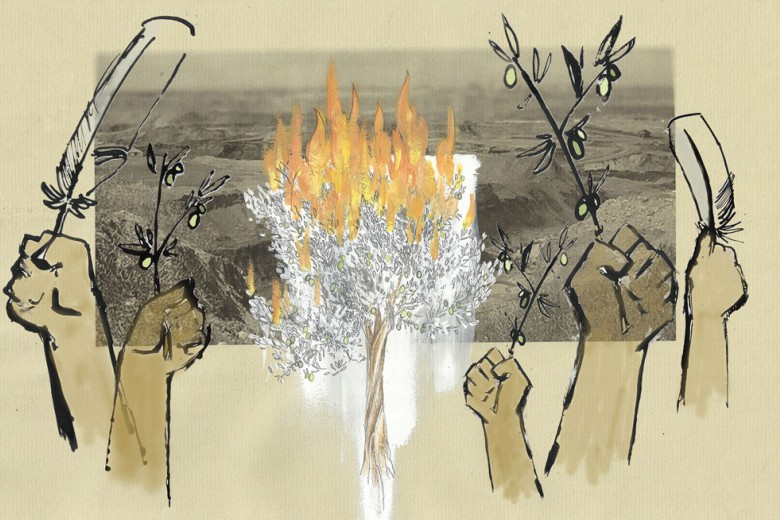Before dawn one Sunday in June 2010, nearly 1,000 people converged on the Port of Oakland in northern California. Following a well-devised plan, they marched to the dockside gates of SSA Marine, one of the world’s largest shipping corporations, and awaited the arrival of the Israeli cargo ship Zim Shenzhen. As Bay Area activists shouted “An injury to one is an injury to all; bring down the apartheid wall,” they were joined by members of Local 10 of the International Longshore and Warehouse Union (ILWU), who proved essential to the protest. Invoking the “health and safety” provision of their contract, longshore workers refused to cross the picket line. It was the first time in history that an Israeli ship was prevented from unloading cargo in North America.
The Port of Oakland picket came in response to a call from the Palestinian trade union movement asking dockworkers worldwide to block Israeli maritime trade in protest of Israel’s illegal siege of Gaza and its lethal attack on humanitarian workers and activists aboard the Gaza-bound Freedom Flotilla that May. In refusing to unload Israeli cargo, members of ILWU joined dockworkers in Sweden, Norway, and Australia in heeding the call from Palestine.
The previous year, members of the Durban branch of the South African Transport and Allied Workers Union (SATAWU) had carried out a similar protest. Following Israel’s military bombardment of the largely defenceless population of Gaza for three weeks during Operation Cast Lead, which killed nearly 1,000 civilians, SATAWU announced that its members would not unload the Zim cargo ship Johanna Russ. A press release by the Congress of South African Trade Unions called attention to Israel’s “flagrant breaches of international law, the bombing of densely populated neighbourhoods, the illegal deployment of chemical white phosphorous, and attacks on schools, ambulances, relief agencies, hospitals, universities and places of worship” and declared that “the momentum against apartheid Israel has become an irresistible force.”
As Linda Tabar of the Palestinian Campaign for the Academic and Cultural Boycott of Israel explains, “The SATAWU action reflects the pioneering role that our South African comrades have played in advancing BDS. It also reflects the pivotal role of trade unions in the BDS movement. Unions are making a central contribution to the struggle by expanding solidarity with the Palestinian movement for freedom and justice to everyday realms of life and linking it to workers’ struggles and movements for social justice around the world.”
Parallels with international solidarity in the historic struggle against apartheid in South Africa are legion, so it is not surprising that many of the same people involved in the anti-apartheid movement have joined the global campaign of Boycott, Divestment, and Sanctions (BDS) against Israel. The ILWU, representing workers in ports along the Pacific coast of the U.S. and Canada, possesses a long and impressive record of direct action in support of both local and global social justice movements.
In the 1930s, West Coast dockworkers refused to handle cargo for Nazi Germany, fascist Italy, and imperial Japan. As early as 1962, Local 10 members collaborated with community activists to boycott South African cargo. Most dramatically, in November 1984, just days after Reagan’s landslide re-election, Local 10 members refused to touch South African cargo for 11 days, arguably the single boldest U.S. action against apartheid.
Similarly, SATAWU in Durban, with the largest port in all of Africa, has a long history of international solidarity, in addition to playing an integral role in its own anti-apartheid struggle. In 1935, union members refused to load meat aboard a cargo ship supplying the Italian army, which had recently invaded Ethiopia. More recently, Durban dockworkers refused to unload an enormous cache of weapons and ammunition from a Chinese vessel headed for neighbouring Zimbabwe in 2008. At the time, Zimbabwe was mired in a controversial election that saw the opposition candidate, a labour leader, brutally beaten by the government. Leaders in SATAWU declared, unequivocally, that they went on strike because they feared the weapons would be used to kill fellow workers in Zimbabwe.
The ILWU took an official stance against the Israeli treatment of Palestinians at its 1988 convention when it declared Israel guilty of “state-sponsored terrorism” and quoted Israeli journalist and author Amos Elon, who described Gaza as “the Soweto of the State of Israel.” The resolution also noted that: “The work day for a Palestinian in Israel is 12 to 13 hours including travel. Palestinian workers are not permitted to remain in Israel overnight (as is the case with Black workers in South Africa).” The long-time Local 10 leader on anti-apartheid activism, Leo Robinson, endorsed the resolution, highlighting that, like black South Africans confined to Bantustans, Palestinians had been dispossessed of their land and had limited autonomy in the tiny bits of land they still had.
A 1991 resolution reaffirmed the union’s support for the Palestinian cause. During discussion on this resolution, Brian McWilliams, future international president of the ILWU, bemoaned “the oppression of workers in the occupied territories in the Gaza Strip and the violation of basic trade union rights and human rights all by the Israeli military occupation.”
The focus on working-class solidarity is a touchstone of how unions can apply class politics to causes that seem primarily about national or racial matters. In recent years, however, a more conservative ILWU leadership has taken a different stance. In fact, staff members at the union’s magazine, the Dispatcher, were fired in 2007, in part for criticizing secretary-treasurer Willie Adams who had visited Israel under sponsorship from a pro-Zionist organization and subsequently penned a sympathetic story in the Dispatcher.
Until now, the ILWU local in Vancouver has not been active in the BDS movement. However, some long-time unionists in B.C., active in global solidarity, have brought BDS to the waterfront. One such person is Ken Hiebert, a retired member of ILWU Canada currently involved in Palestine solidarity work on Vancouver Island. “It seems clear to me that to get a union to participate in boycott activity, it is necessary to have union members promoting the boycott,” says Hiebert. He references a protest in the summer of 2010 where about 50 BDS supporters in Vancouver picketed a docking Zim ship: “There was no such core of leaders in the ILWU Canada to promote BDS. The initiative came largely from the outside.” Hiebert also notes that several of leaders of Vancouver’s ILWU local who were active in the anti-apartheid struggle passed away prematurely, leaving a void yet to be filled.
Ultimately, the movement to free Palestine from Israeli apartheid will come from the Palestinian people. Yet just as in the struggle against apartheid in South Africa, there is an important role to be played by individuals and organizations around the world. The isolation of South Africa – achieved over decades of struggle – was vital to ending the apartheid regime. Working people and labour unions can and should play a comparable role in the BDS movement.




_780_520_90_s_c1.jpg)


